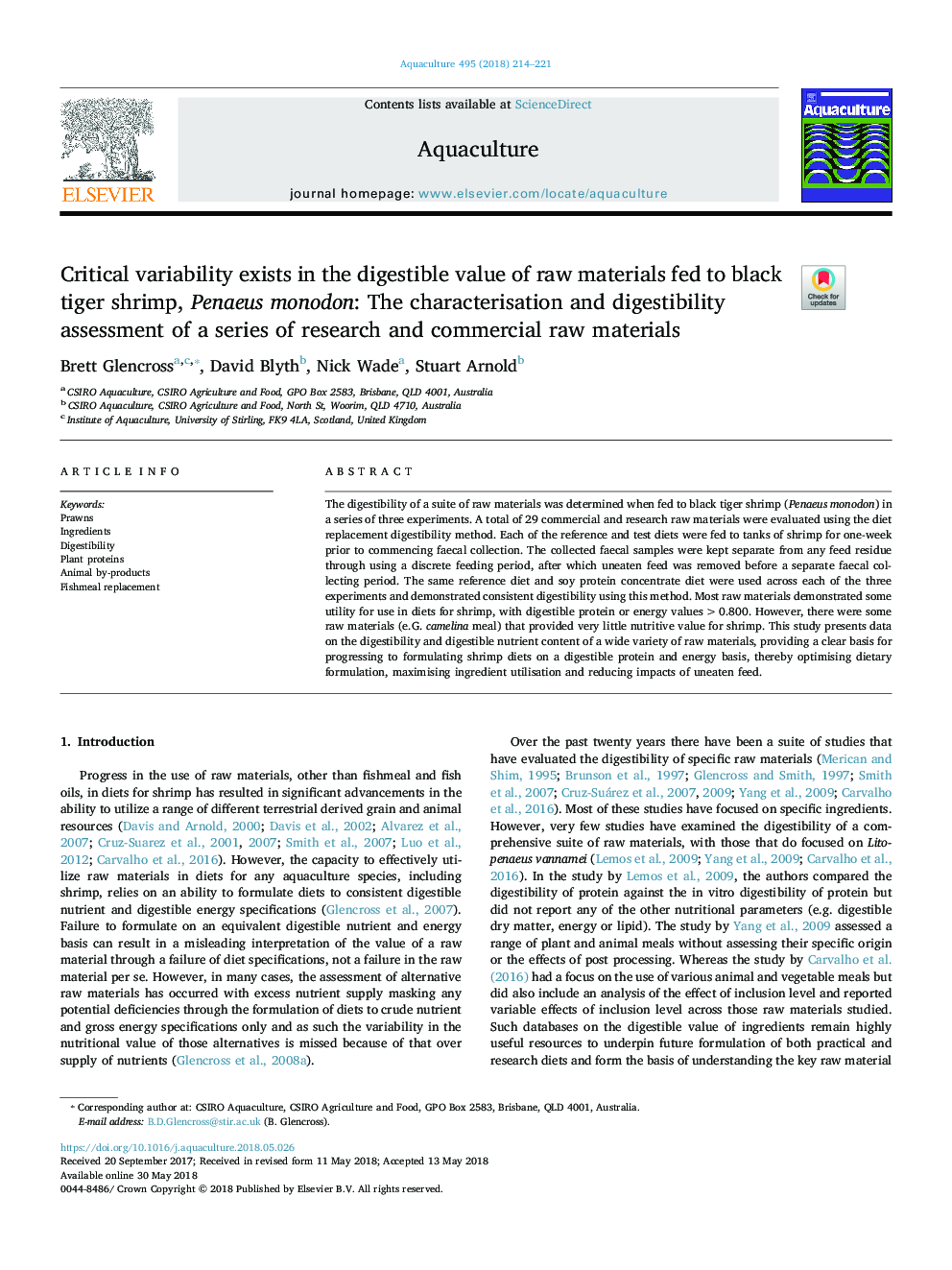| Article ID | Journal | Published Year | Pages | File Type |
|---|---|---|---|---|
| 8493045 | Aquaculture | 2018 | 8 Pages |
Abstract
The digestibility of a suite of raw materials was determined when fed to black tiger shrimp (Penaeus monodon) in a series of three experiments. A total of 29 commercial and research raw materials were evaluated using the diet replacement digestibility method. Each of the reference and test diets were fed to tanks of shrimp for one-week prior to commencing faecal collection. The collected faecal samples were kept separate from any feed residue through using a discrete feeding period, after which uneaten feed was removed before a separate faecal collecting period. The same reference diet and soy protein concentrate diet were used across each of the three experiments and demonstrated consistent digestibility using this method. Most raw materials demonstrated some utility for use in diets for shrimp, with digestible protein or energy values >0.800. However, there were some raw materials (e.G. camelina meal) that provided very little nutritive value for shrimp. This study presents data on the digestibility and digestible nutrient content of a wide variety of raw materials, providing a clear basis for progressing to formulating shrimp diets on a digestible protein and energy basis, thereby optimising dietary formulation, maximising ingredient utilisation and reducing impacts of uneaten feed.
Related Topics
Life Sciences
Agricultural and Biological Sciences
Aquatic Science
Authors
Brett Glencross, David Blyth, Nick Wade, Stuart Arnold,
